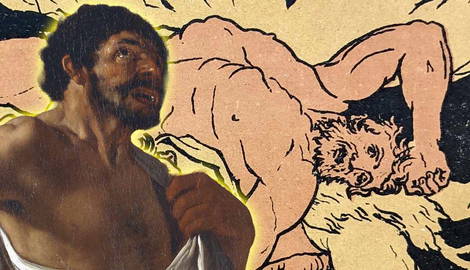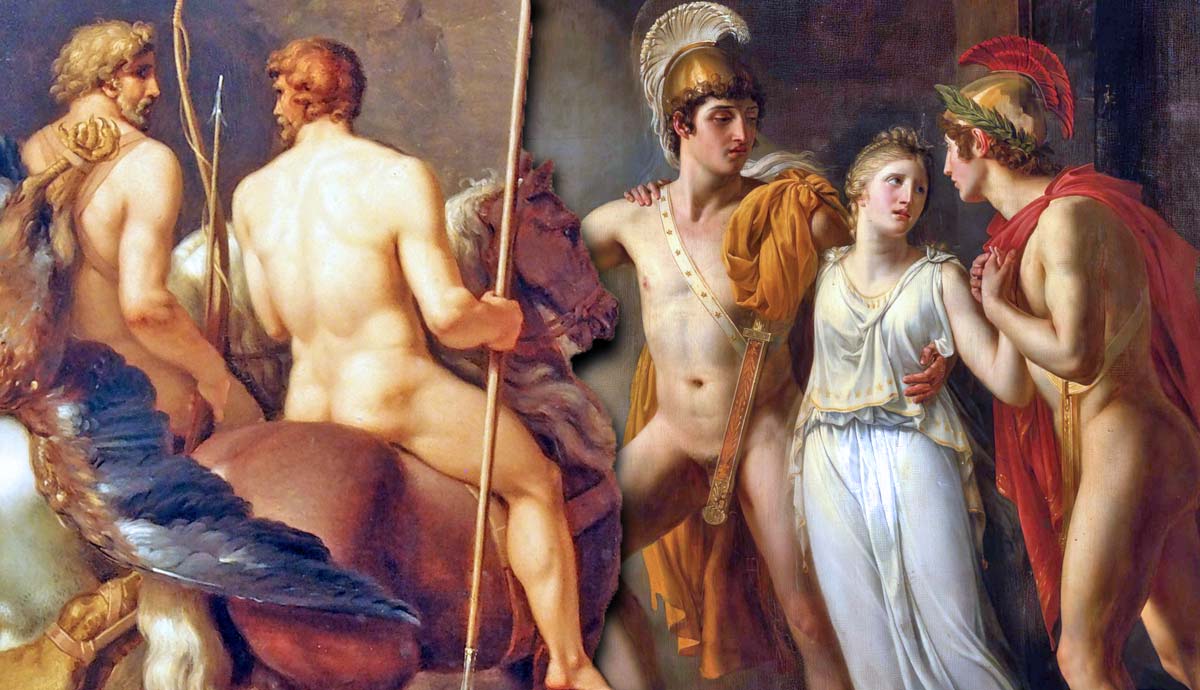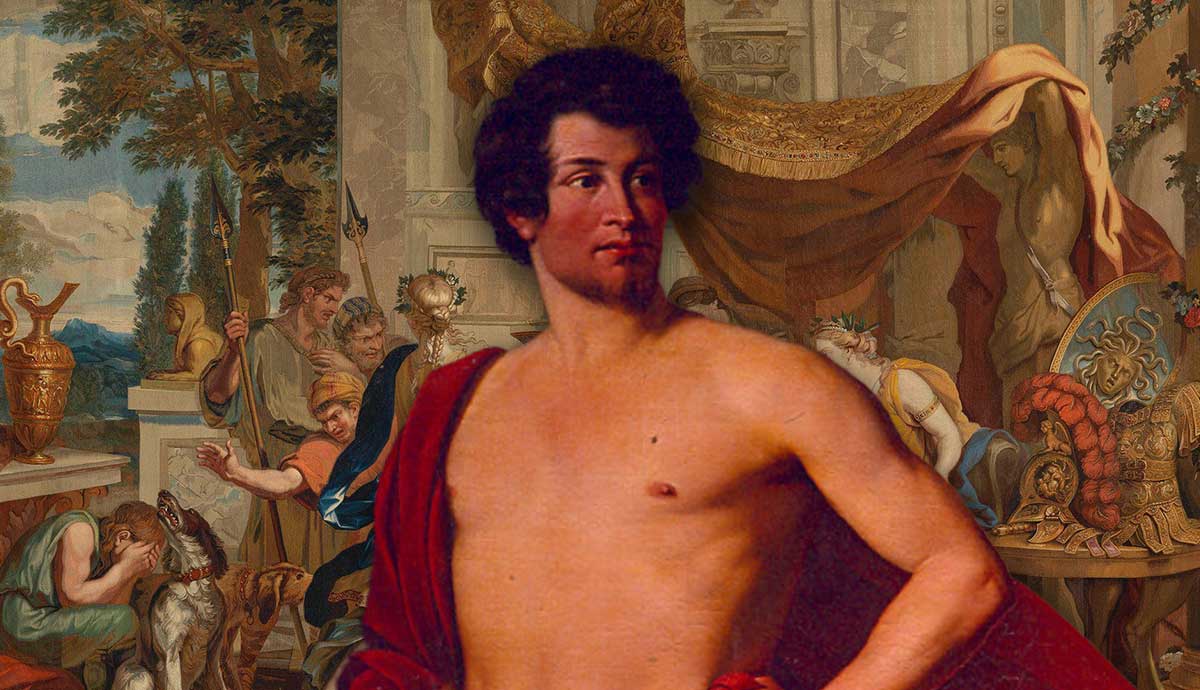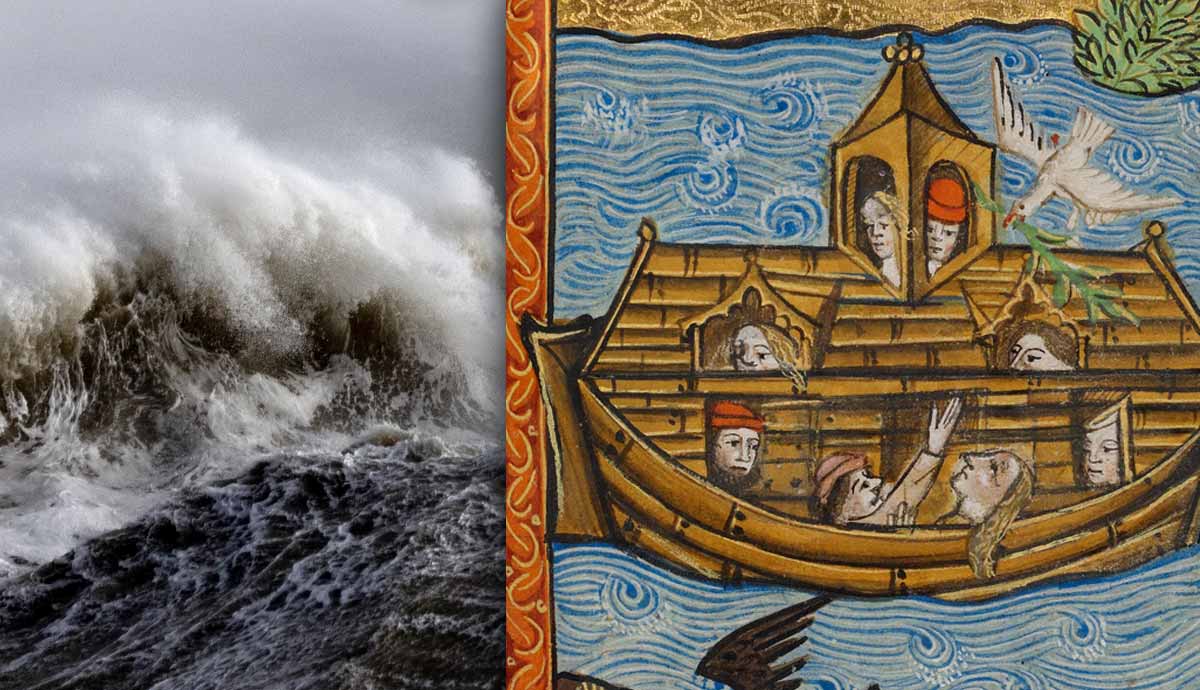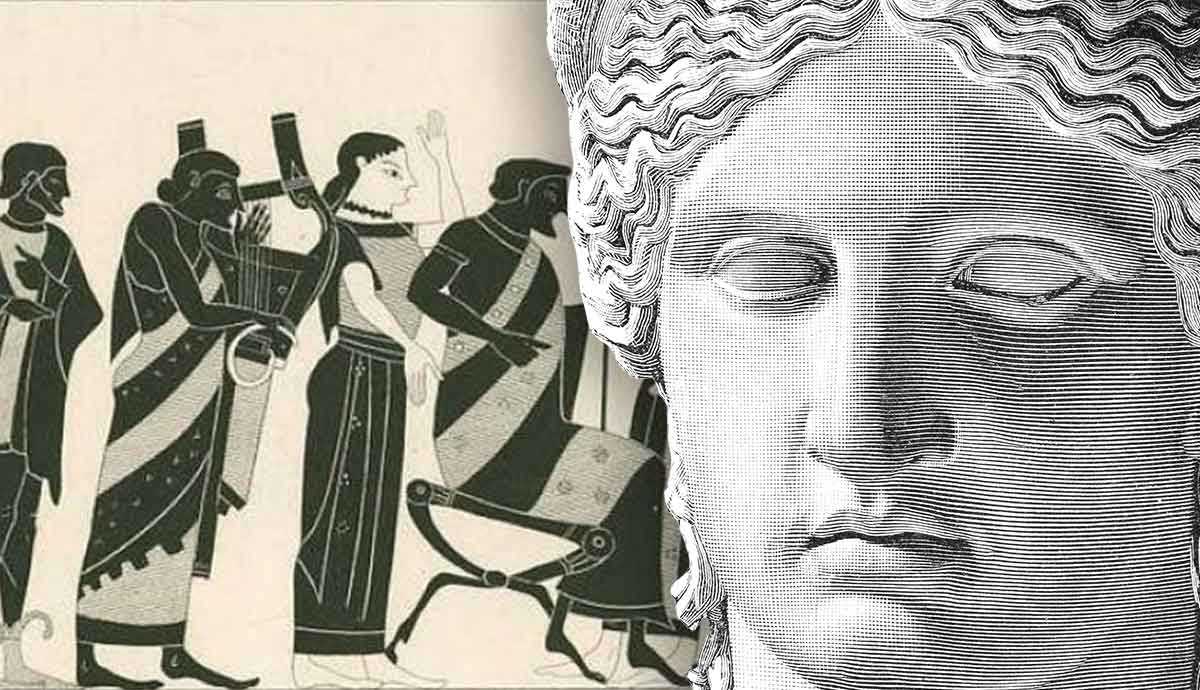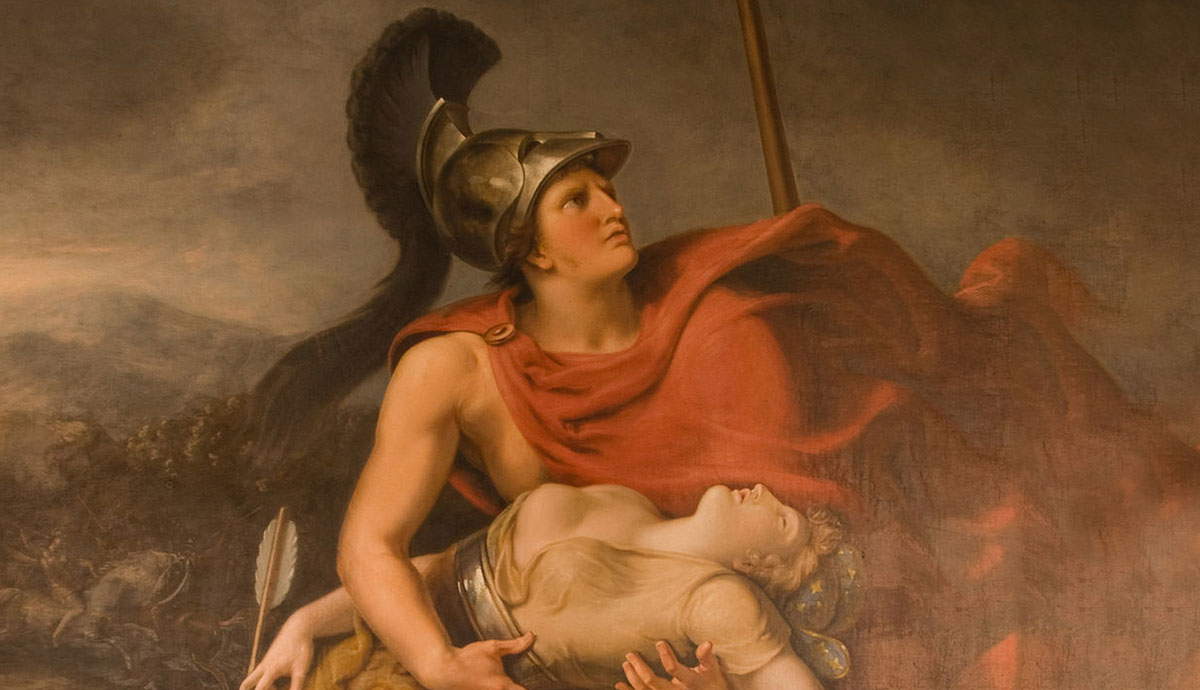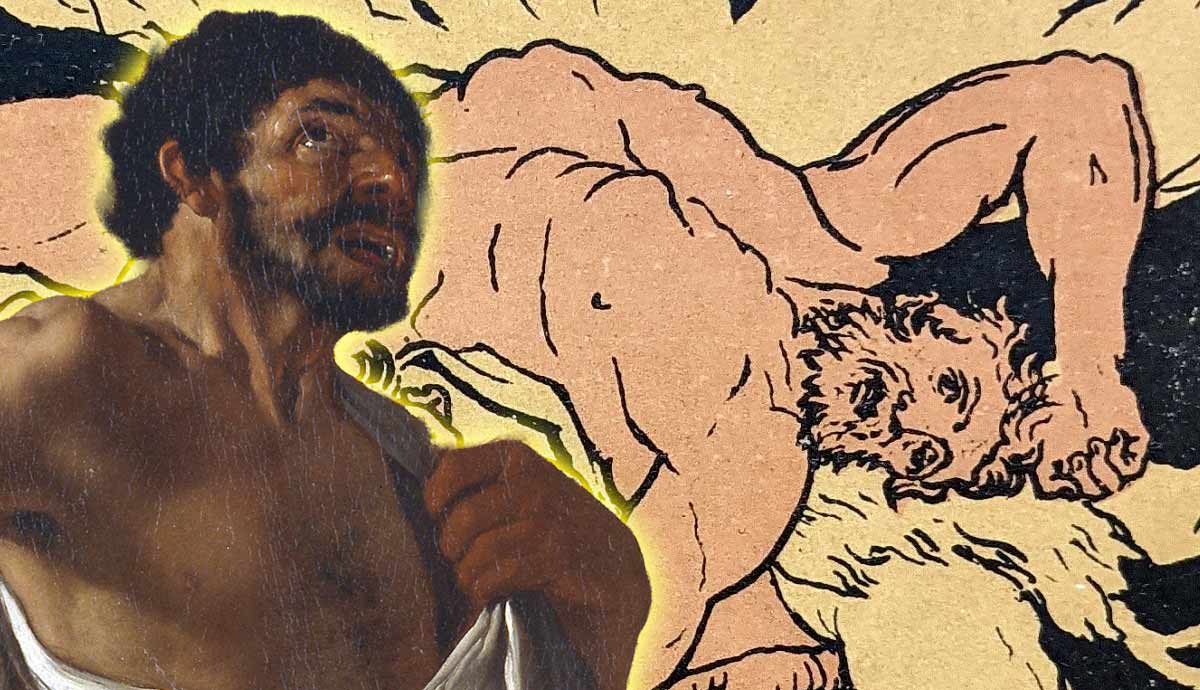
The life of Heracles was one tumultuous adventure after another. He faced impossible challenges, battled monsters, and outwitted kings and gods. He led mighty armies against those who wronged him and enjoyed the affection of many. However, after joining the Olympians in their epic battle against the giants, Heracles yearned for a more settled life and sought love and marriage. Yet, Heracles’s past caught up with him, and through a powerful combination of revenge and love, Heracles’s tragic demise was sealed. Dive deeper into the tale of Heracles’s fateful end.
Heracles and Deianira
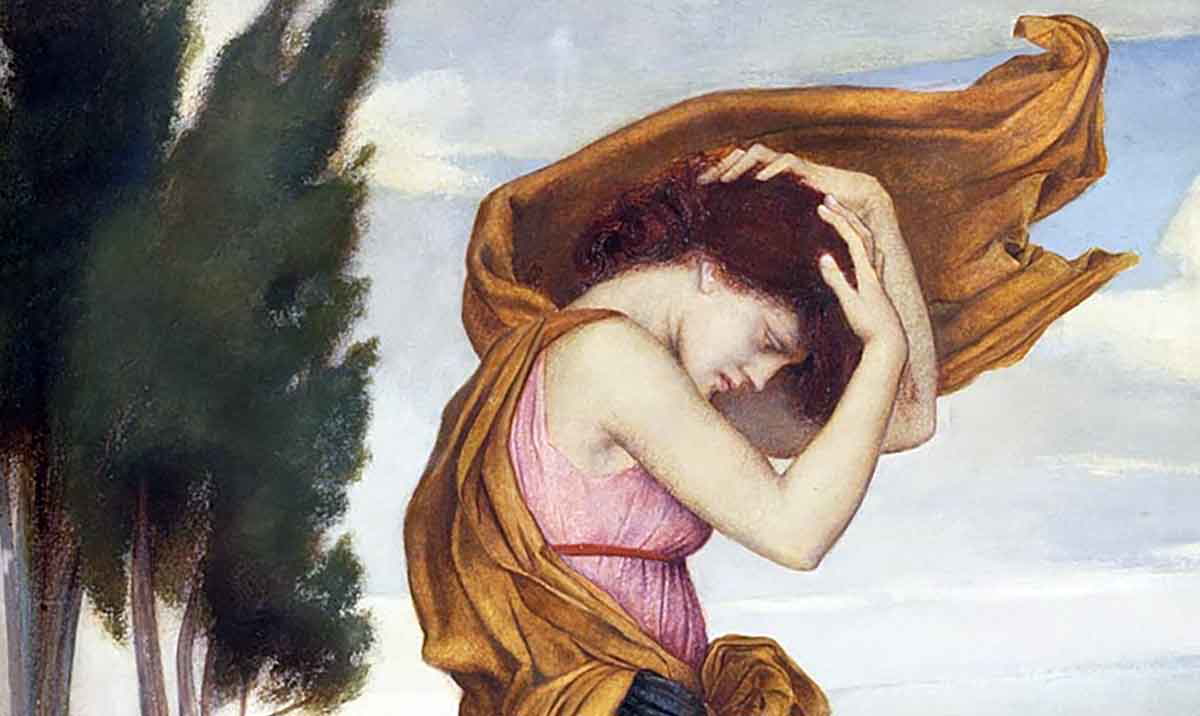
After the Gigantomachy, Heracles shifted his focus to an old aspiration: finding a wife. Despite completing his labors, his search for a partner had been hindered by a tragic murder, years of atonement, and a series of vendettas against powerful Kings who had wronged him. With the Gigantomachy concluded, Heracles had only one name remaining on his list of grievances: King Eurytus of Oechalia. Nevertheless, Heracles set aside his grudge against Eurytus for the time being and remembered his promise to his late friend and fellow Argonaut Prince Meleager of Calydon in the Underworld during his twelfth labor.
Heracles had promised to marry and protect Meleager’s younger sister, Deianira. Meleager was worried that Deianira would not find a husband due to the scandal surrounding his death years earlier. When Heracles arrived in Calydon, he discovered Meleager’s fears were unfounded. Heracles immediately fell in love with Deianira: she was beautiful, clever, and independent and had turned down numerous suitors she considered unworthy of her. However, one suitor refused to accept no for an answer and attempted to court Deianira against her will.
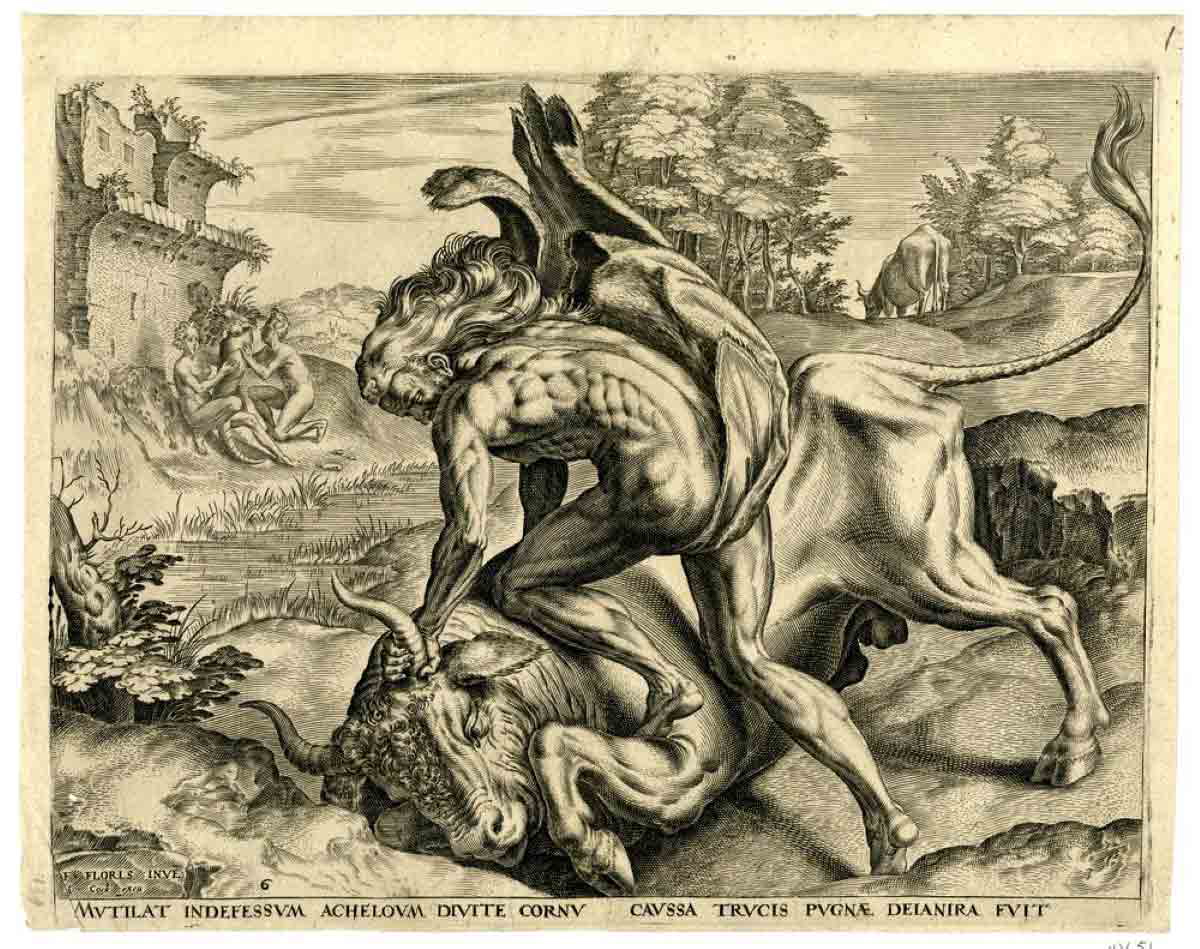
The river god Achelous had become infatuated with Deianira and began trying to seduce the Calydonian princess. Being a river god, Achelous could change his shape, and he decided to impress Deianira by transforming into different creatures. Achelous became a bull, a snake, and a half-man, half-bull creature, and began following her to win her over. While Achelous thought his various transformations were a sophisticated form of romance, Deianira saw it as harassment and was disgusted by the river god’s attempts to charm her.
Although Heracles had a problematic marriage history, including killing his first wife and abandoning his second, Deianira was instantly taken by his simple charms and impressive physique. Unfortunately, Achelous’s persistent courting had to be dealt with before the two could marry. To end Achelous’s unwanted affection, Heracles challenged the river god to a wrestling match to determine who would win the right to marry Deianira.

When the match began, Achelous transformed into many animal forms to slip out of Heracles’s mighty grip. Every time Heracles found purchase and tried to pin the river god, Achelous changed shape and slipped away. Heracles began to tire as the match continued, and Achelous saw his opportunity to finish the fight. The river god changed into a bull and charged directly at Heracles. However, Achelous was overconfident, and Heracles grabbed the bull by the horns, pinning the river god into submission and accidentally snapping off one of the river god’s bull horns in the process.
Achelous pleaded with Heracles to return his broken horn and offered to exchange it for the legendary Horn of Plenty, known to the Romans as the Cornucopia. Long ago, Zeus accidentally broke off the horn of Amalthea, the mother goat who nursed him when he was still an infant hiding from his father, Cronos. As an apology, Zeus magically filled the horn with endless food and drink, which would never run out. Heracles accepted the trade and would never go hungry ever again.
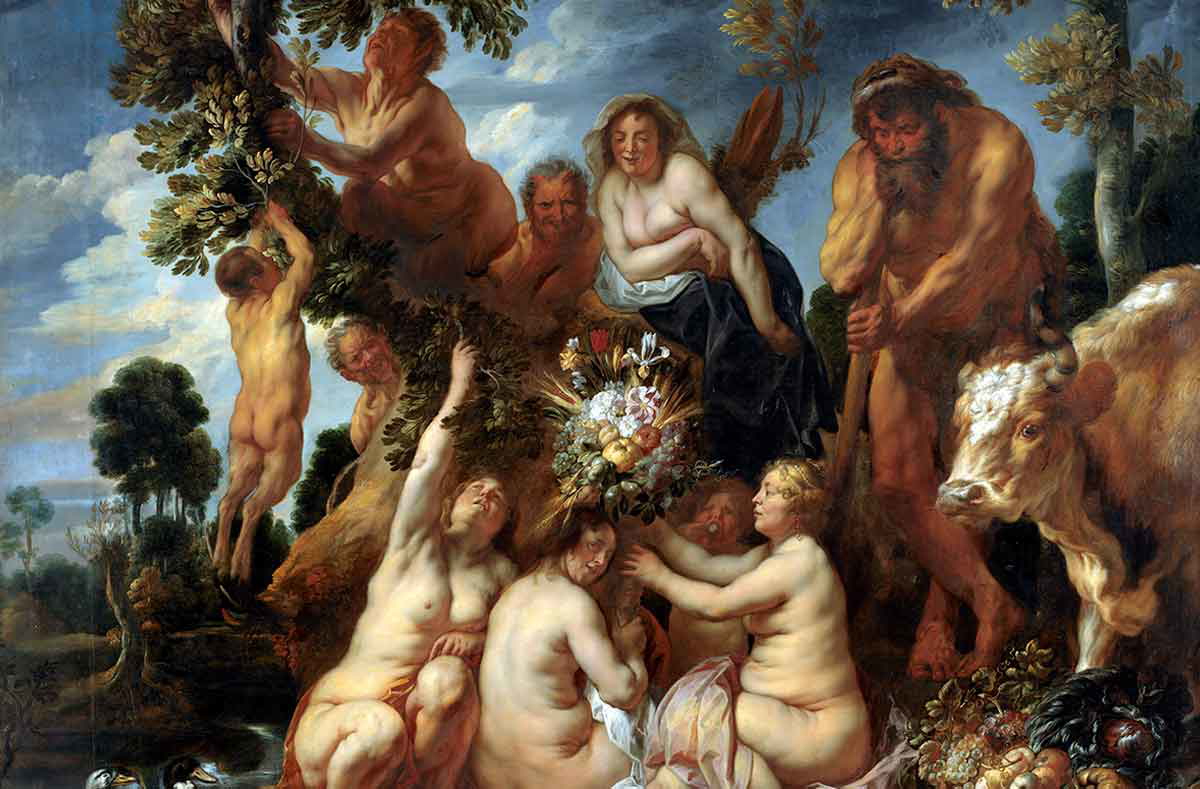
After Achelous was no longer a threat, Heracles and Deianira married and settled in Calydon to start a new life together. It was the first time in a long while that Heracles felt so at peace, not since his early life in Thebes before his labors and the death of his first wife, Megara had he felt this way. The couple had five children together: four sons, Hyllus, Ctesippus, Glenus, and Onites, and a daughter named Macaria. However, Heracles’s peaceful life was not meant to last.
During a banquet hosted by Deianira’s father, King Oeneus, Heracles lost his temper when the King’s cupbearer accidentally spilled wine on him. Heracles, forgetting his strength, hit the server and inadvertently killed them. Although Oeneus forgave Heracles, he could not forgive himself. Feeling ashamed of his failure to control his temper and strength, Heracles left Calydon with Deianira and traveled for a while. Little did he know that during their journey, they would come across a river that would mark the beginning of the end of the great hero Heracles’s life.
The Revenge of Nessus
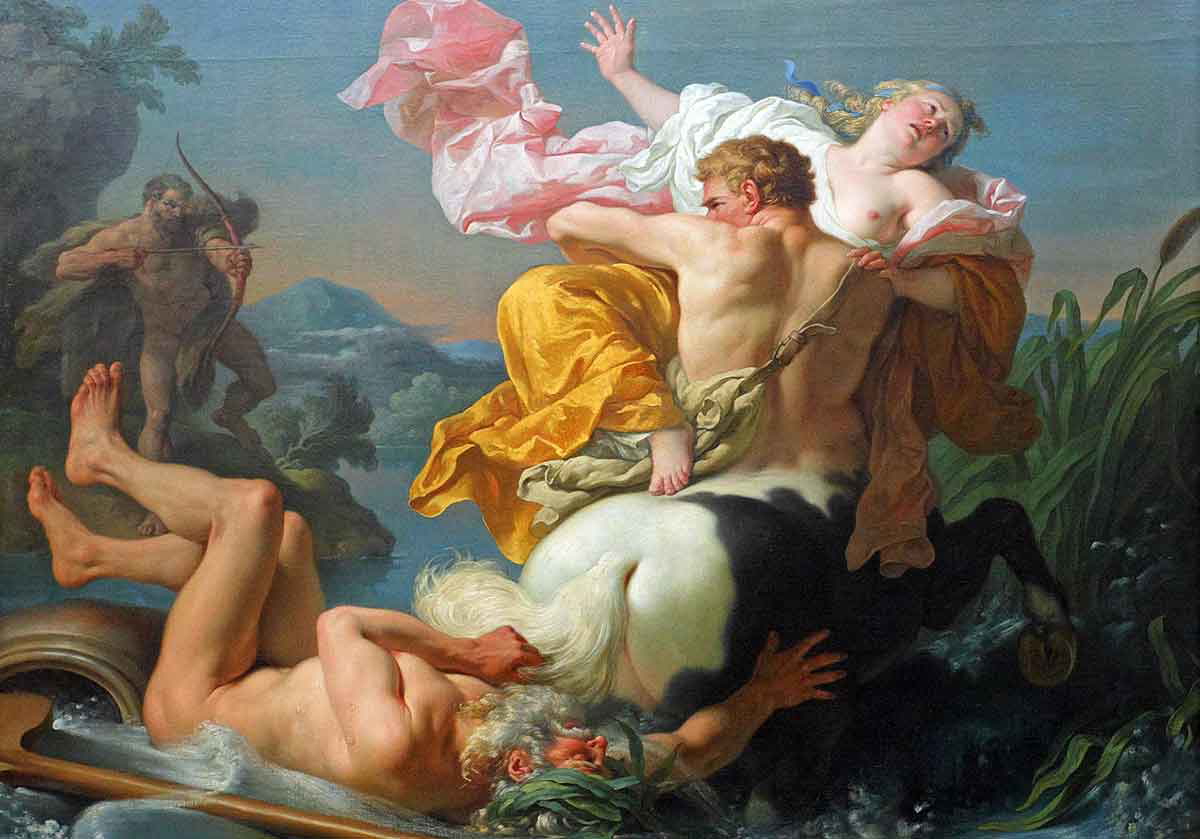
Heracles and Deianira traveled across Greece, visiting old friends and acquaintances. During their travels, they arrived at the banks of the Evenus River and encountered a centaur named Nessus. The Evenus River had a fast-flowing current and was difficult to cross. Nessus earned a living by serving as a ferryman, helping travelers cross the rapid river. While the river’s current posed no threat to Heracles, who elected to swim across, he hired Nessus to carry Deianira. Nessus agreed, and Deianira climbed on the centaur’s back and began to swim across while Heracles stayed on the bank to ready himself for his swim.
Heracles did not recognize Nessus, but the centaur recognized Heracles. During his fourth labor, Heracles sought the advice of his friend, the centaur Pholus, who helped him devise a strategy to capture the Erymanthian Boar. Afterward, they celebrated by drinking wine blessed by Dionysus. Pholus hesitated to drink the wine as it was the nearby centaurs’ communal property. He warned Heracles that the scent might attract neighboring centaurs and drive them into a frenzy.
Heracles ignored the warning and drank, attracting the centaurs and causing them to go wild and storm into Pholus’s cave. In a drunken rage, Heracles retaliated, driving them away and slaughtering most of them with his arrows coated in Hydra venom. One of the few centaurs to survive Heracles’s onslaught was Nessus, who swore to seek justice for his fallen brothers one day.
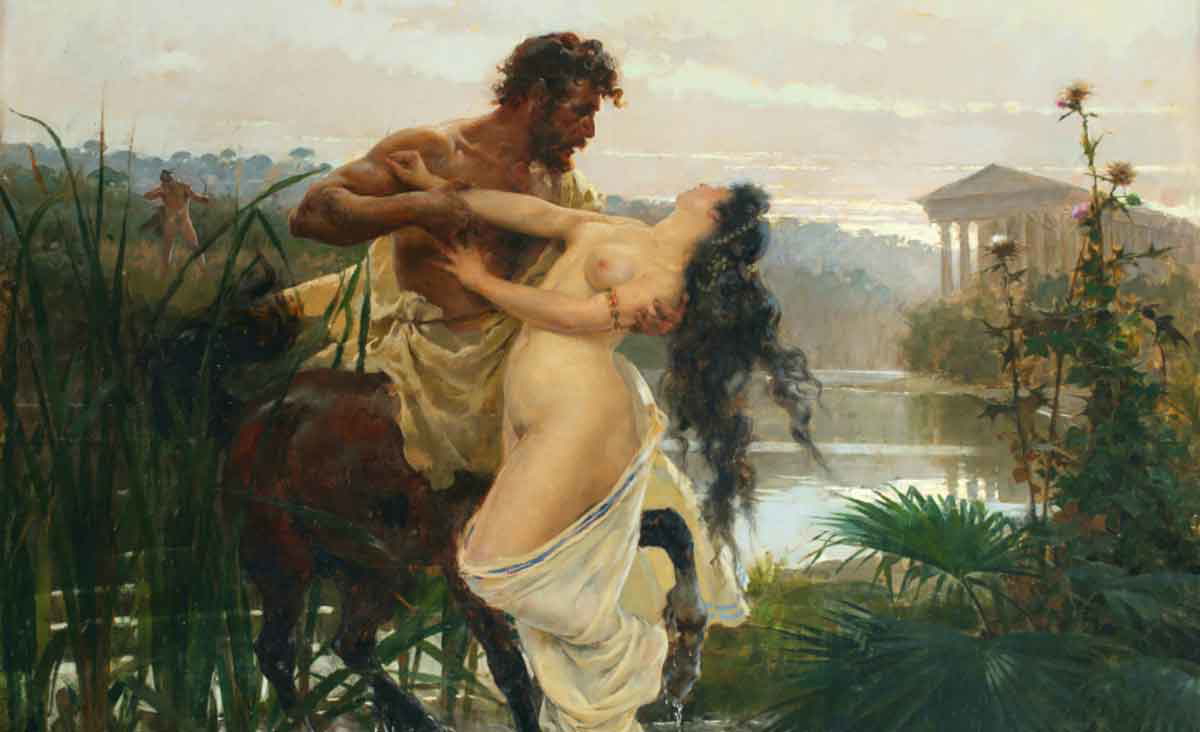
It seemed fate had finally allowed Nessus the opportunity to take revenge against the man who had killed his friends. Nessus realized that attempting to fight or kill the hero would only result in his demise. When Heracles arrived with his beloved wife, a plan quickly formulated in Nessus’s mind: an eye for an eye. Just as Heracles had caused him pain and suffering by killing those he cared about, Nessus would do the same to him in return.
Nessus tried to abduct Deianira and assault her while crossing the river. Heracles heard his wife’s cries and noticed the centaur trying to tear her clothing off. Without hesitation, Heracles drew his bow and shot one of his venom-coated arrows, hitting Nessus in the side. Nessus stumbled to the riverbank, dropped Deianira, and then collapsed in pain as his blood stained his shirt.
Having witnessed the effects of the Hydra venom years before when Heracles attacked his friends, Nessus knew his time was limited. Despite nearing death, Nessus was still consumed by thoughts of revenge. Another plan began to form as he looked at Deianira’s concerned and confused face in his dying moments.
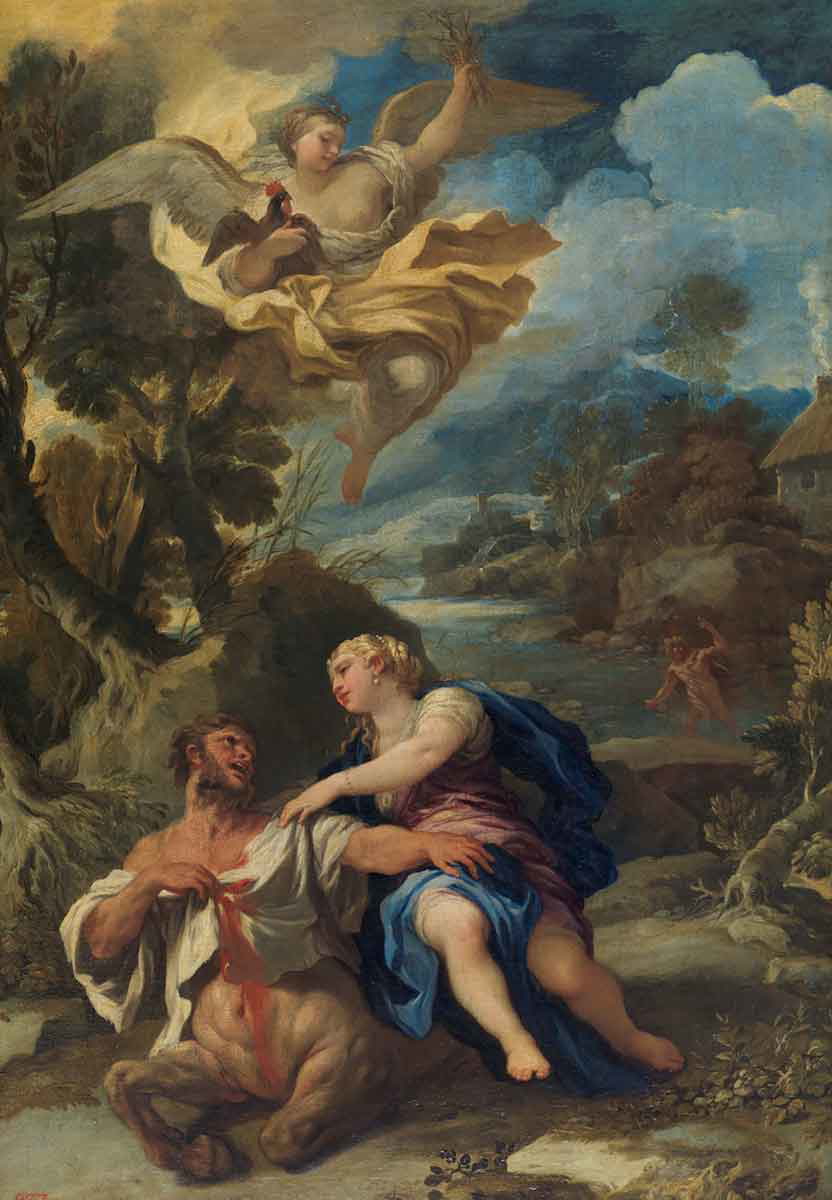
Nessus begged Deianira to forgive him for his attempted assault. He blamed his actions on the impulsive and lustful nature of the centaur people—a nature which had contributed to their attack on Heracles years earlier—claiming he could not help himself after seeing her beauty.
Nessus told Deianira that her husband was in the right and that her beauty was no excuse for what he had done. He told Deianira that Heracles’s actions were a marker of true love and that he hoped their shared love would never wither over the following years. Nessus then asked Deianira to take his blood-stained shirt as an apology. He claimed that his blood was infused with love magic and that anyone who absorbed it would fall in love with the person who gave it to them. With his dying words, he instructed Deianira to give it to her husband if she ever feared that he was falling out of love with her.
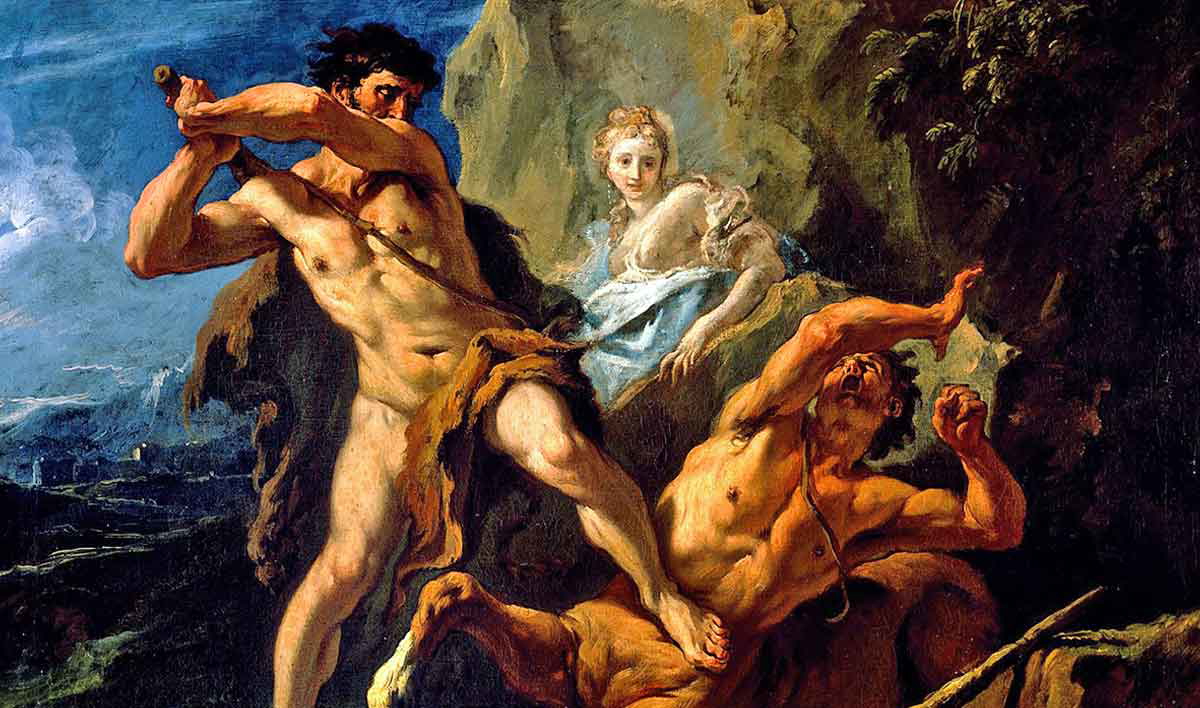
Heracles finally reached the other side of the river and approached Nessus, who was already dying, with his club in hand, and began to attack him. While Heracles dealt the final blow to Nessus, Deianira hid the centaur’s shirt on her person. Despite their genuine and passionate love, Heracles had a reputation as a womanizer, and Deianira had a few small insecurities regarding their relationship.
Once the ordeal was over, the two continued their travels. Deianira hoped she would never find a reason to use Nessus’s blood-stained shirt. However, Nessus died with a smile; he had planted the seeds of Heracles’s destruction. Nessus’s blood was not infused with any love magic, but it had just been infused with the deadly venom of the Hydra.
The Death of Heracles
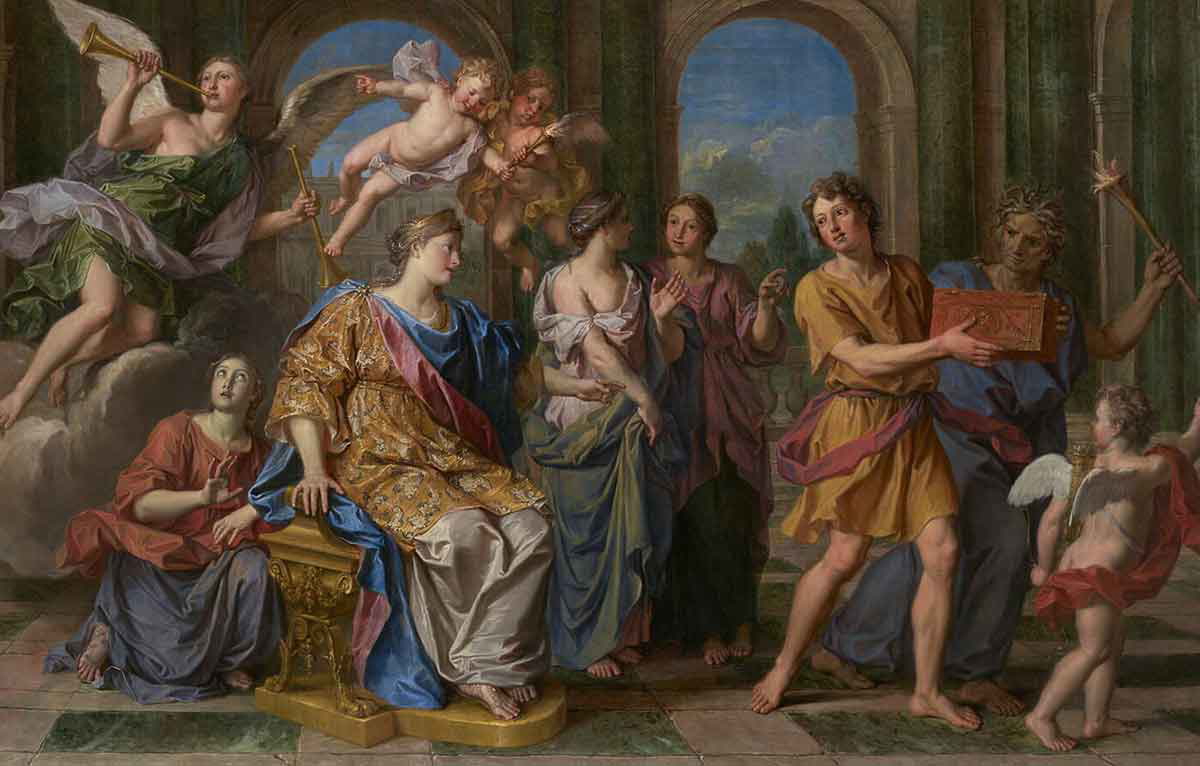
After traveling together, Heracles and Deianira returned to their children and settled into many years of marital bliss. However, one aspect of the hero’s character eventually reared its ugly head: his ability to hold a grudge.
Despite having a wonderful marriage to his loving wife, Heracles was still angry at King Eurytus for not allowing the hero to marry his daughter, Princess Iole. Heracles decided to take revenge, gathered an army, and attacked Oechalia, King Eurytus’ capital city. Oechalia quickly fell, and Heracles found and killed Eurytus and all his sons. The only member of the royal family to survive Heracles’s attack was the beautiful Princess Iole, whom Heracles took back home to serve as his servant and concubine.
When Heracles came home with Iole, Deianira’s insecurities about her marriage surfaced. She was convinced that Heracles would leave her for the younger Iole. Remembering the shirt that Nessus had given her, she used it to ensure that her marriage with Heracles stayed intact. One night, Deianira told Heracles that she had gotten him a new shirt as a gift and asked him to try it on for her. Heracles, being a dutiful husband, obeyed his wife’s request.
Deianira gave the shirt to Heracles’s servant Lichas who presented it to Heracles. Despite his massive size and physique, Heracles squeezed into the tight shirt. Before Heracles could take in his appearance, his skin began to tingle and burn. Within seconds of putting on the shirt, the Hydra venom infused in Nessus’s blood was absorbed into Heracles’s skin, causing him unbearable pain.
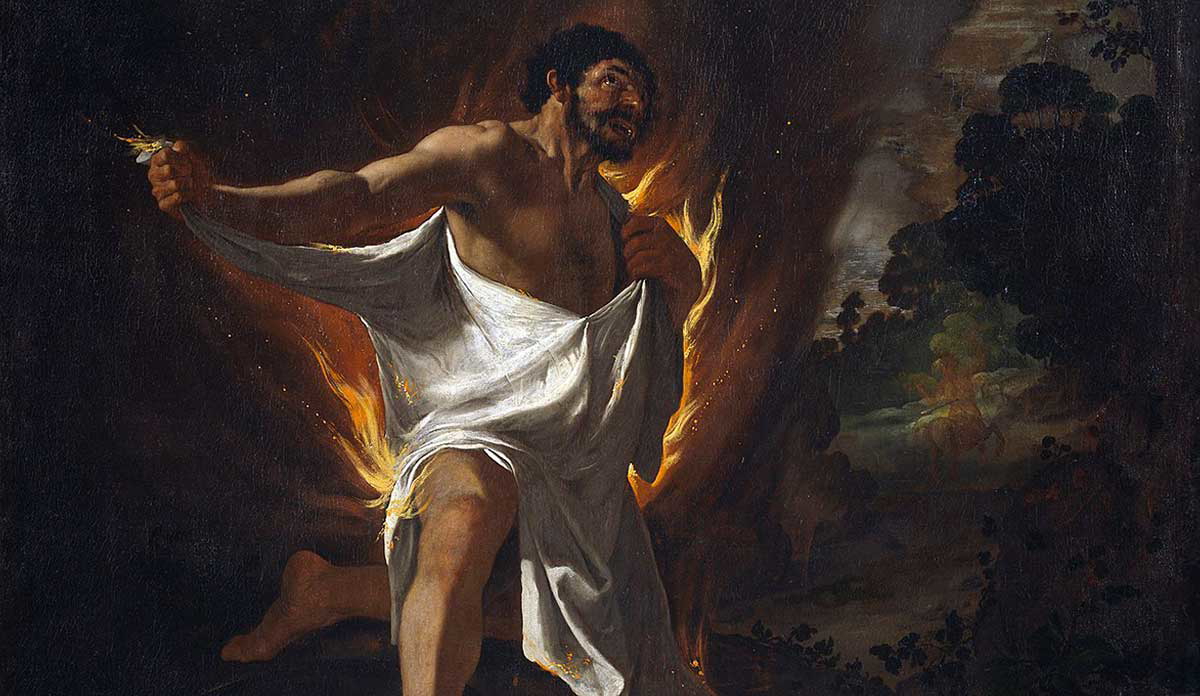
In unbearable agony, Heracles tore off his shirt, pulling much of his melting skin with it. The venom was already spreading through his body, and Heracles, who had used Hydra-coated arrows to kill many enemies, recognized the signs of poisoning. Believing his servant Lichas had tried to kill him with the poison, Heracles, in a fit of excruciating pain, seized the poor man and hurled him off the side of a cliff.
As Heracles roared in pain, he began running frantically and uprooting trees around his home, piling them up. His wife, Deianira, his children, and his friends looked on with confusion and concern, trying to calm him down and call for healers. However, Heracles ignored them all and continued piling the trees with tears in his eyes. Eventually, Heracles’s eldest son, Hyllus, realized what his father was doing: Heracles was performing his last labor and constructing his funeral pyre.
Knowing there was no cure for Hydra venom, Heracles chose to go out in a blaze of glory rather than endure a slow and agonizing death. Once the funeral pyre was built, Heracles leaped onto it and, through gritted teeth, begged someone to set it alight.
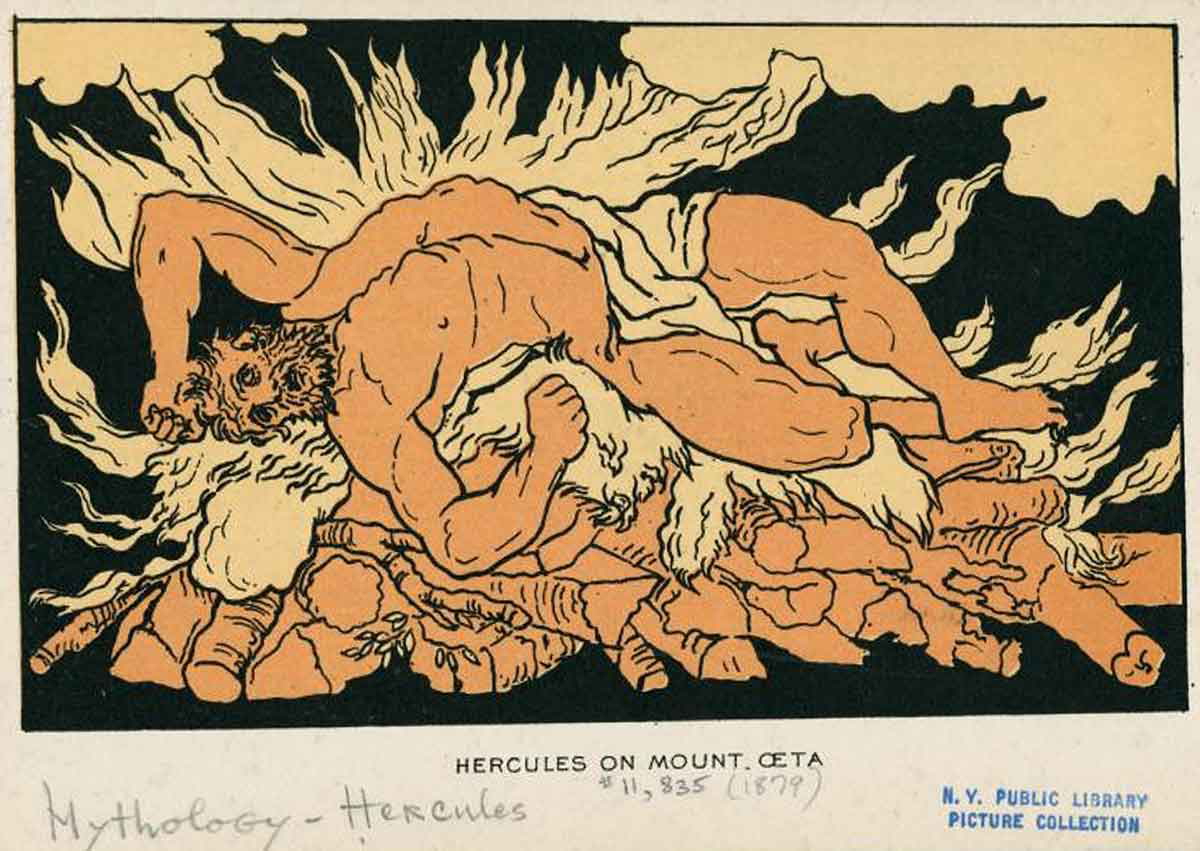
No one present dared to move. Neither Heracles’s sons nor his faithful squire Iolus attempted to set the pyre alight, fearing they would forever be remembered as the person who helped kill Heracles. Heracles’s cries of pain still filled the air, and he begged all of them to end his misery. Finally, Philoctetes, one of Heracles’s oldest friends and adventuring partners stepped forward and set Heracles’s pyre on fire.
Heracles thanked his friend by giving him his bow and poison arrows, which Philoctetes would use in the Trojan War. As the flames consumed Heracles, the hero who had endured a lifetime of hardship and glory, breathed a sigh of relief. The fire ended his pain, and Nessus finally got his revenge.
In the aftermath, Deianira realized how she had been tricked and what she had done to her beloved husband. Consumed by grief, she committed suicide, either by hanging herself or falling on Heracles’s sword.
Apotheosis
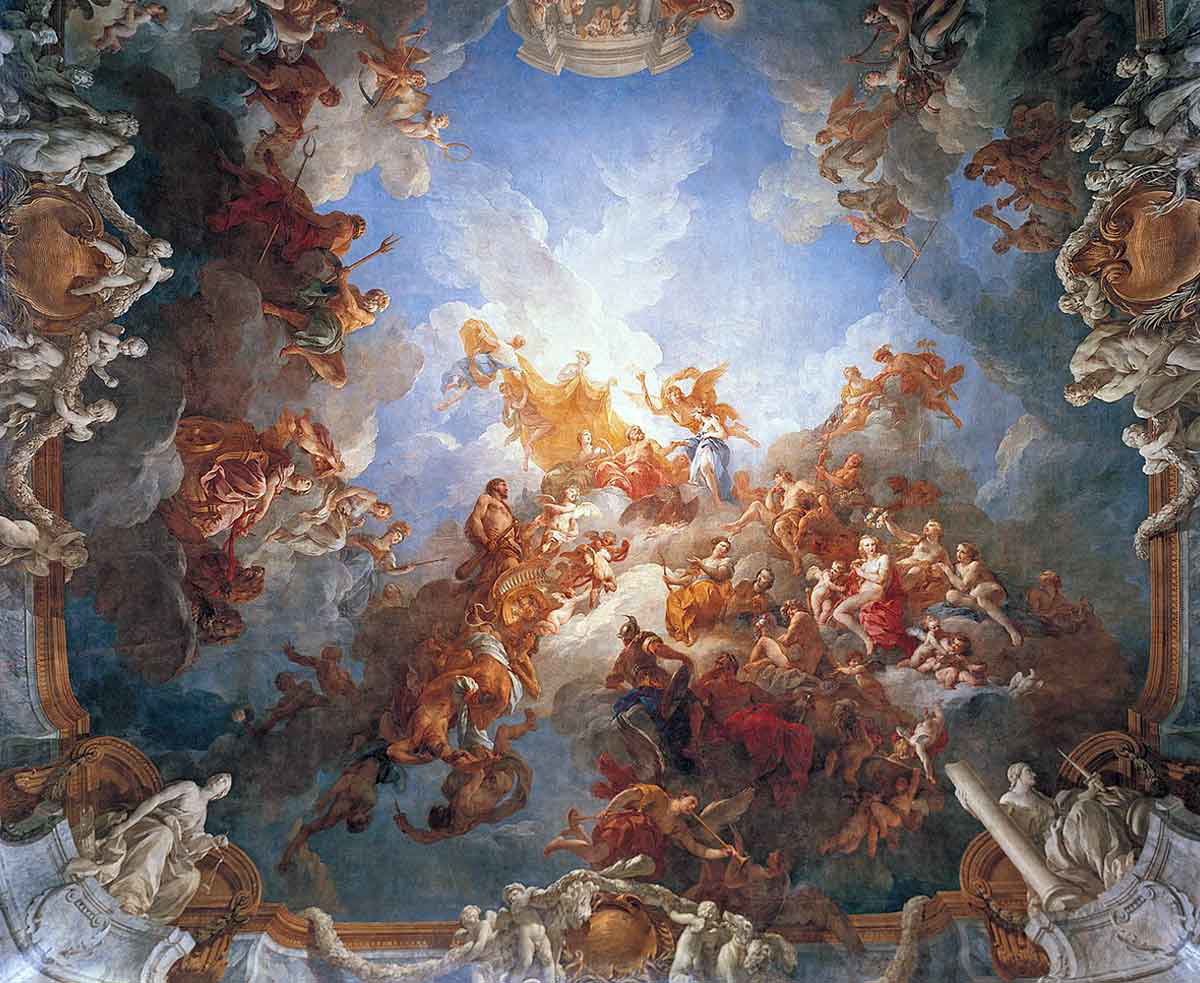
When Heracles died, his soul did not go into the depths of the Underworld. Years earlier, the hero had consulted the oracle of Delphi about how to atone for murdering his family. The oracle told him to go to Eurystheus and start his labors. As Heracles left, the oracle also mentioned that he would gain immortality if he completed all of Eurystheus’s tasks obediently and without complaint.
Whether Heracles took the oracle’s final words to heart is unknown; most likely, the hero forgot them over his many years of adventure and hardship. However, as the flames ended his suffering, finally freeing him from pain, Heracles’s soul began to rise to the heavens and the halls of Mount Olympus.
All twelve Olympians greeted Heracles. For his lifetime of heroic adventures, protecting humanity, and ridding the world of monsters and evildoers, his father Zeus rewarded him with godhood. Heracles became the god of Strength and Heroes for his diligent service.
Hera, who had set aside her hatred of Heracles after he protected her during the Gigantomachy, offered him her cupbearer and daughter, Hebe, the goddess of eternal youth and old age, in marriage. Heracles and Hebe had two divine sons, Alexiares and Anicetus, who were minor deities responsible for the protection of cities and fortresses and acted as the gatekeepers of Olympus.
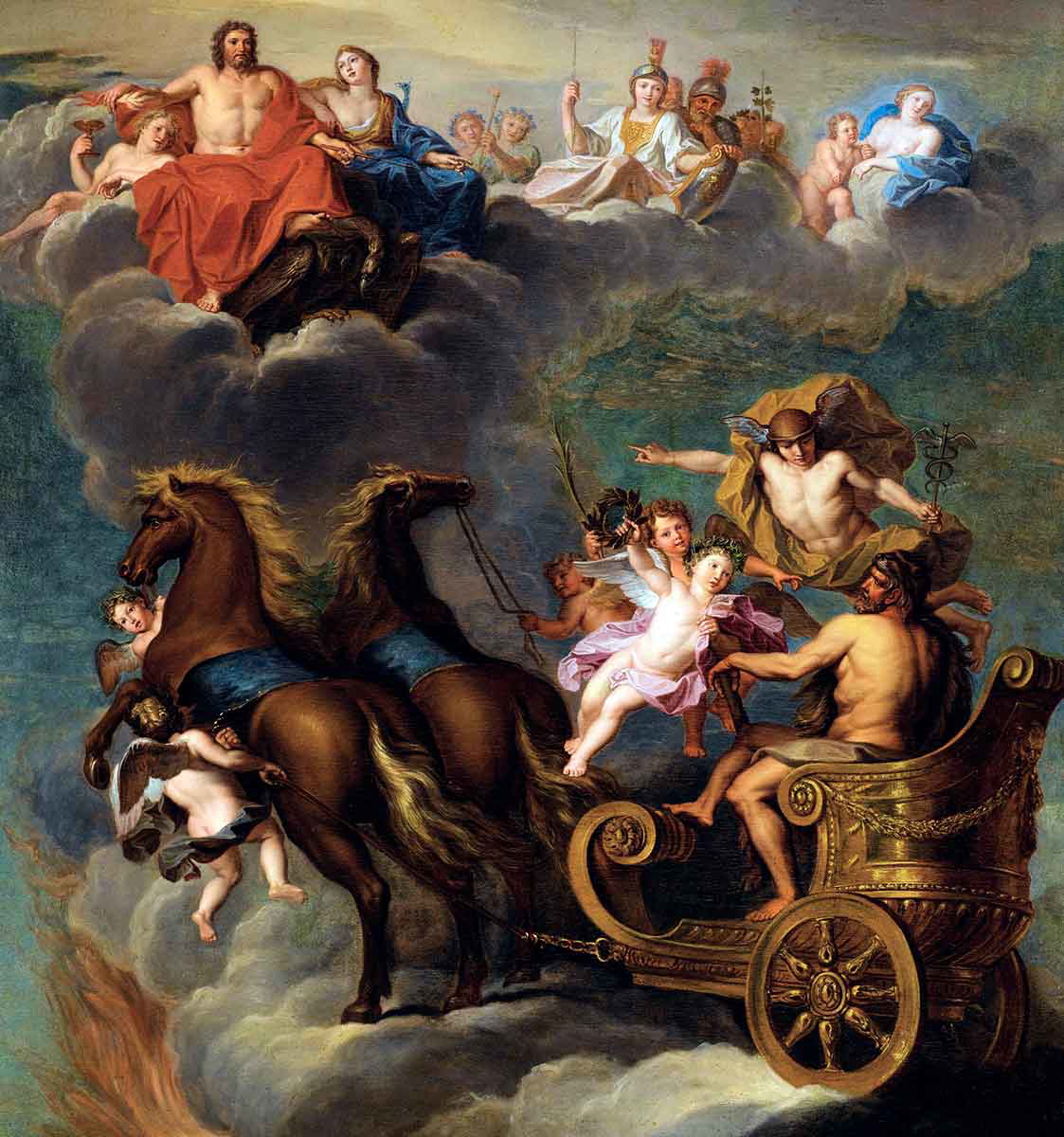
Heracles became the model for the strong, brave, dependable hero who assisted those in need. Yet, one of his greatest characteristics was that Heracles was imperfect; his temper often got the best of him, and he typically favored direct and simple solutions over cunning plans.
Right from the beginning, Heracles faced insurmountable challenges. Even before his birth, Hera, out of spite, cursed him to a life of pain and suffering for the crime of being born a child of Zeus. Indeed, no labor of Heracles was greater than being born and living as Heracles. However, Heracles would overcome Hera’s torment and all the impossible obstacles thrown his way, achieving godhood and becoming the most revered and greatest hero known in ancient Greece and Rome.
